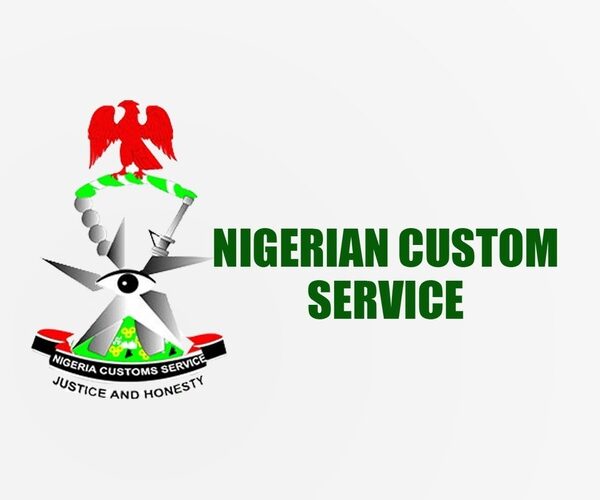Paragraph 1: Nigeria Customs Service Lauded for Trade-Boosting Initiatives
The Nigeria Customs Service (NCS) has received widespread commendation from stakeholders for its implementation of several innovative initiatives designed to enhance trade facilitation. These accolades were delivered during the 2025 NCS Trade Facilitation Stakeholders Consultative Forum held in Ikeja, which coincided with the first anniversary of the Advanced Ruling Programme. The forum, themed “Trade facilitation measures for renewable energy and energy efficiency technology,” provided a platform for stakeholders to discuss the impact of these new programs. Among the lauded initiatives are the B’Odogwu, a Unified Customs Management System; the Advance Ruling System; the Authorised Economic Operator Programme; and the Time Release Study. These programs aim to streamline customs procedures, reduce delays, and promote transparency in international trade.
Paragraph 2: Positive Stakeholder Feedback and Seamless Implementation
Stakeholders expressed their satisfaction with the implemented trade facilitation tools, particularly the Advanced Ruling Programme, citing its beneficial impact on their operations. While acknowledging initial teething problems expected with any new system, they emphasized the overall seamlessness and tremendous support received throughout the process. This positive feedback underscores the effectiveness of the NCS’s efforts to simplify customs procedures and create a more conducive environment for businesses engaged in international trade. The successful implementation of these initiatives demonstrates the NCS’s commitment to modernizing its operations and aligning with global best practices.
Paragraph 3: The NCS’s Commitment to Trade Facilitation and International Agreements
The Comptroller General of Customs, Adewale Adeniyi, emphasized the importance of trade facilitation as an integral part of modern customs operations worldwide. He highlighted the NCS’s adherence to international trade laws, including the WTO Agreement on Customs Valuation, the WCO Harmonized System Convention, and the WTO Agreement on Rules of Origin. Adeniyi explained that the NCS plays a crucial role in collecting duties on internationally traded goods, a function essential for national economic development. He also acknowledged that the technical complexities involved in determining customs duties, including tariff classification, valuation, and origin assessment, could potentially lead to disputes, delays, and increased costs for traders.
Paragraph 4: Addressing Challenges in Customs Procedures
Adeniyi further addressed challenges faced by the NCS, such as commercial fraud, revenue leakage, and the enforcement of policy measures to protect domestic industries, the environment, and public safety. He noted that these issues often disproportionately affect compliant traders who experience delays due to the necessary scrutiny required to maintain statutory obligations. The CGC stressed that the increasing volume of global trade, coupled with the expansion of global value chains and the rise of e-commerce and Just-In-Time services, necessitates the adoption of mechanisms that support the seamless flow of legitimate trade. He emphasized the importance of such mechanisms, not only for sustaining international commerce but also for empowering small and medium-sized enterprises to participate in cross-border trade.
Paragraph 5: Defining Trade Facilitation and its Benefits
The Comptroller General defined trade facilitation as encompassing systems and procedures that streamline the import, export, and transit of goods. This includes simplifying processes related to customs valuation, tariff classification, origin determination, declaration submission, payment, review, intervention, and release. He stressed that trade facilitation ensures uniform standards, predictability, and transparency, which are critical for efficient and timely clearance for traders. Furthermore, Adeniyi highlighted the NCS’s support for the WCO Green Customs Initiative, which aims to facilitate the trade of environmentally sustainable goods. This initiative underscores the NCS’s commitment to environmental responsibility and its role in enforcing multilateral environmental agreements.
Paragraph 6: Collaboration, Consolidation, and Innovation: The Pillars of Progress
Assistant Comptroller General of Customs, Charles Orbih, Zonal Coordinator, Zone A, emphasized the importance of collaboration, consolidation, and innovation as key drivers of the NCS’s progress in trade facilitation. He described the forum as a manifestation of Nigeria’s policy of trust, where stakeholders come together to consolidate the gains made in trade facilitation, address existing challenges, and collectively forge solutions. Orbih’s remarks highlighted the collaborative spirit of the NCS and its commitment to engaging with stakeholders to create a more efficient and effective trading environment. The forum served as a testament to the ongoing efforts to improve customs procedures and promote sustainable economic growth through enhanced trade facilitation.














